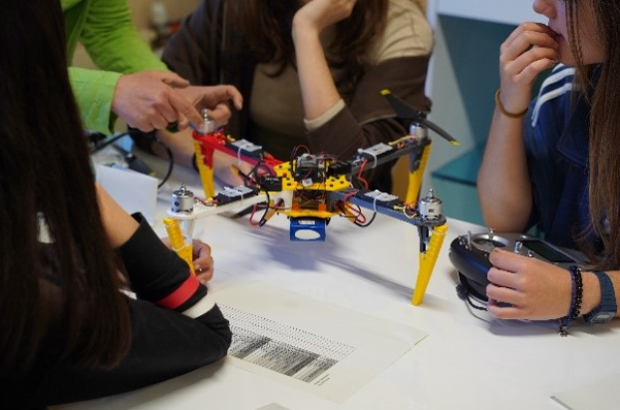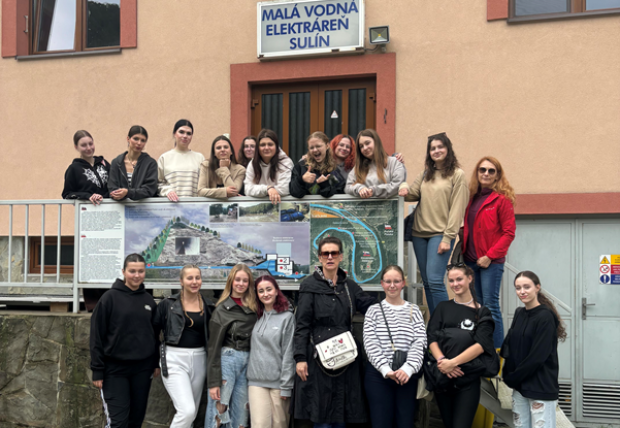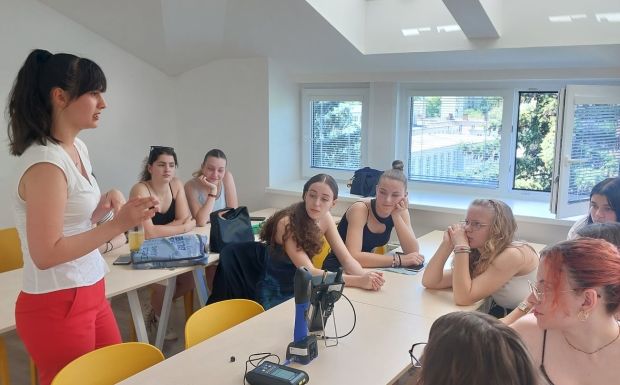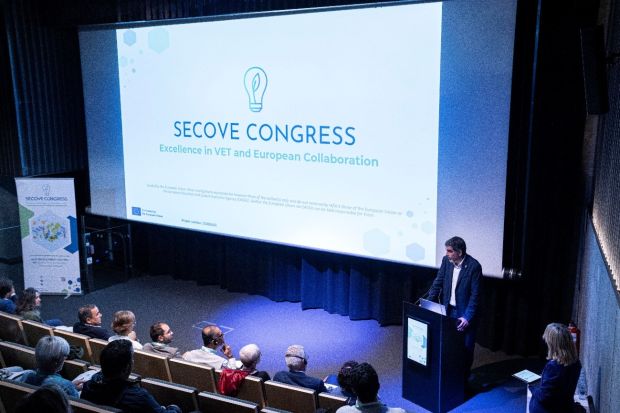National Workshop in Slovakia (November 2022)
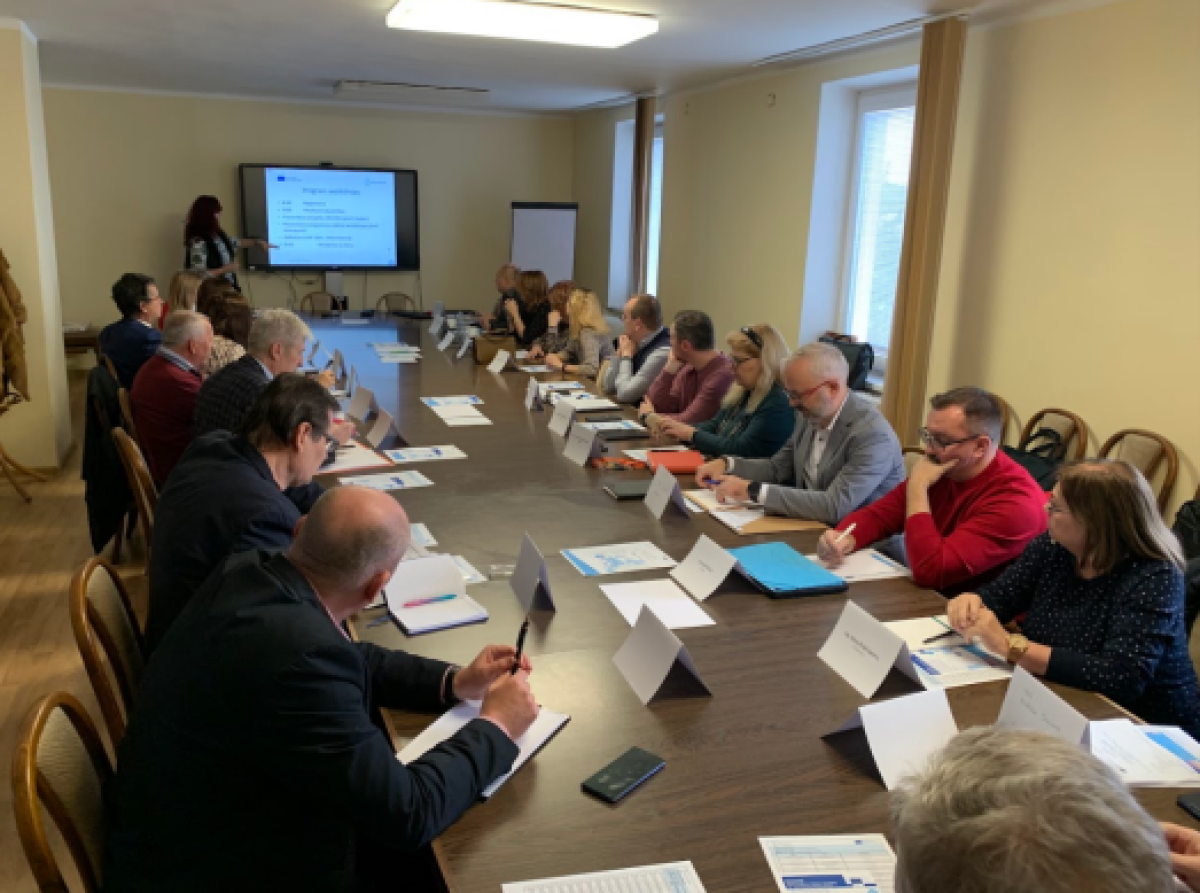
Slovak partners organized their own National Workshop in November 2022 at the Faculty of Civic Engineering in Slovakia.
The event was attended by:
- Technical University of Kosice (host)
- IZOLA
- Slovak Chamber of Engineers
- Stredná priemyselná škola stavebná a geodetická
- ASTRA
The main aims of the workshop were as follows:
- To gather stakeholders at regional level and engage them in a structure dialogue
- To identify local and regional needs and expectations and develop a local vision for excellence
- To prepare the input for the transnational workshop
The workshop gathered all partners from the Slovakian team of project SECOVE and 30 stakeholders, who represented the quadruple helix – educational institutions, companies, professional organizations, public administration, and the non-profit sector. The introduction of the SECOVE project has been followed by presentation on CoVEs in general.
All participants were divided into 2 working groups and took part in three separate workshops.
Workshop 1
What Excellence means in VET?
The first workshop was moderated by Iveta Orbanová and supported by Natasa Urbancikova, both representatives from ASTRA.
- How can SECOVE establish excellence in Teaching and learning?
- How can SECOVE establish excellence in cooperation and partnerships?
- How can SECOVE establish excellence in governance and funding?
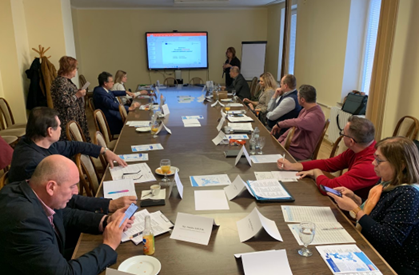
Participants discussed the following questions, agreeing with the conclusions and recommendation described below:
Q1. Is there a common perception and understanding of the term ‘excellence in VET’?
- ‘Excellence in VET’ is the national topic. However, as the market conditions might be region specific, regional needs should be taken into account (e.g. by establishment of CoVEs that are ‘purpose-built’ as part of national/regional arrangements for excellence in VET).
Q2. What kind of problems and obstacles are there on the road of building excellence?
- Outflow of teachers – lack of experts, lack of hands on experience in case of many teachers.
- Little support, poor funding from the level of regional self-government.
- Insufficient cooperation and sharing between schools-practice-regional government.
- Little realistic information on future labour market needs.
- Insufficient definition of knowledge, skills and competences for the future professions.
- Poor funding does not allow to promote innovation.
Q3. How to build and achieve the excellence in VET? Recommendations and steps to be done to build CoVE
- Building awareness and information about vocational education and training for general public.
- Map what key players can share: know how, experts, infrastructure, laboratories.
- Plan and implement targeted marketing of VET to attract students, use success stories of graduates to catch the attention.
- Practitioners to teach students in schools, but also to share information knowledge and experience with teachers – train of trainers.
- Schools support lifelong learning of practitioners.
- The use of ICT to support different forms of learning.
- The establishment of new interdisciplinary fields of study.
Workshop 2
Challenges and Needs of different Stakeholders
The second workshop was moderated by Zuzana Vranayová from TUKE and supported by Alena Vargová from IZOLA.
- How can we identify and involve local stakeholders?
- Which are the current needs of the job market in sustainable energy?
- How can we build skills ecosystems: Creating synergies between industry representatives and VET?
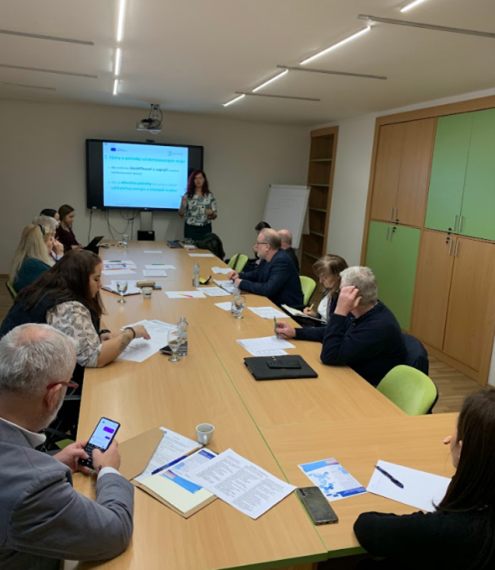
1. The need to include stakeholders
- Companies with innovations, smart technology, digitization -for connection with green buildings- smart building monitoring.
- Companies focused on ecologies, environment – green technologies .
2. Problems in the job market and education, specially in sustainable energy
- Many companies focused on green construction. It is a necessary selection of these companies.
- Many professions are vacant because of a lack of quality students for example in the field of technical equipment of buildings and in the skills of digitization (BIM design).
- Non-professional promotion for experts, students, designers, and teachers.
- Teachers in secondary schools do not have the necessary information for innovative education of students.
- Practitioners are not motivated to teach in schools – Currently, they are discouraged by excessive requirements.
- Secondary schools have a problem getting students to do internships – companies set high conditions.
Possible solutions
- The need to capture the development of students already in secondary schools – motivate students to be interested in learning and developing in this direction.
- Changing the curriculum of the school educational program at the regional level.
- Practitioners should be motivated to teach in schools.
- Necessary retraining of teachers in secondary schools.
- Help secondary schools with the training of teachers with digitalization and innovations to provide them laboratories for demonstration.
- Create “living labs” where students and teachers can evolve.
3. Creating synergies between industry representatives and VET
- Inspiration from the world – what we need in the skill system – to create a team ready for the recovery axis.
- Propagation for the public – create a story about an energy transformation – a real demonstration to the people as motivation, showing what is behind it and what they can do for it.
- Connecting architects and planners when designing buildings to create buildings with more passive elements so that many active elements do not have to be applied.
- A more entertaining form of promotion (e.g. “brainstorming”).
Workshop 3
How SECOVE will address the common vision for excellence?
The third and final workshop was moderated by Oto Hudec and supported by Nina Hadidomová, both representatives from TUKE.
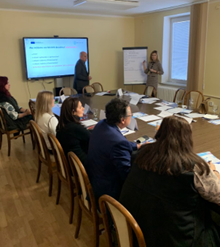
A shared vision for CoVEs
Partners anticipate using CANVAS methods to create a business plan, and are now at the beginning of forming the vision.
Focus of CoVE: the discussion brought agreement to focus on Green Buildings as an appropriate medium for sustainable energy policy and to combat the impacts of climate change. Better suited than orientation to NACE sector. The life cycle of buildings can link different skills, not only from the construction industry, that are found in the region. This fulfils the role of COVE to support regional development, based on the cooperation of actors and the co-creation of a skills ecosystem in the field of Green Buildings.
Conclusions
All partners involved, along with stakeholders showed keen interest and noted serious current problems, gaps and ideas for solutions. Often problems exist at the national level, economic policies, lack of legal norms and educational policies. The environment in which the institutions operate is challenging due to the lack of professions, the lack of technical building installations is critical.
The key common conclusion is a shared willingness to contribute to the formation of COVE in Košice as a primarily regional centre with links to National programmes and institutions.






